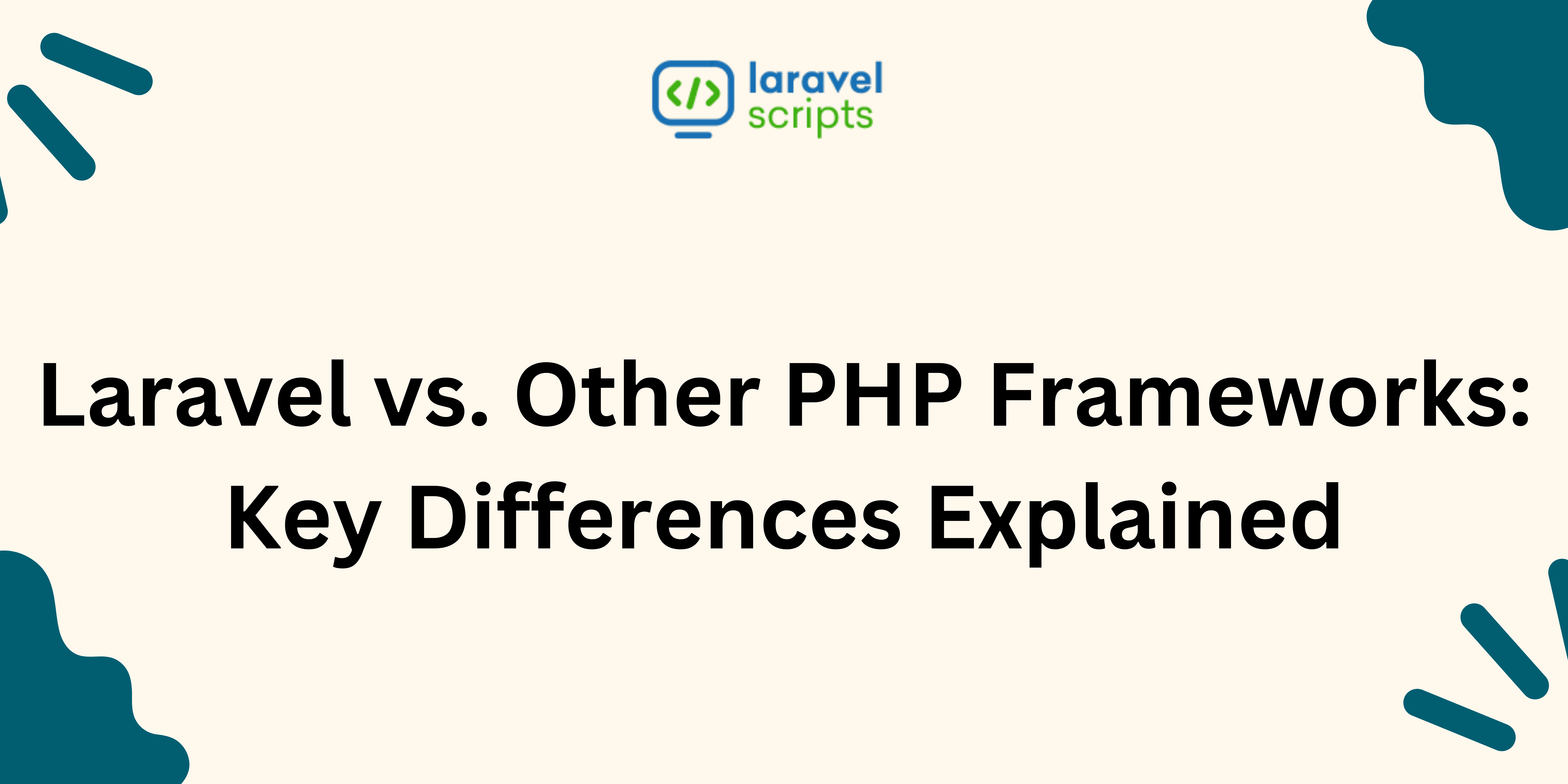Laravel vs. Other PHP Frameworks: Key Differences Explained

Introduction
In the world of PHP development, choosing the right framework is crucial for building scalable, secure, and maintainable applications. Laravel, with its elegant syntax and rich features, has gained massive popularity in recent years. But how does it stack up against other PHP frameworks? In this article, we will compare Laravel with some of the most popular PHP frameworks, such as Symfony, CodeIgniter, and Zend Framework.
1. Laravel Overview
Laravel is a PHP web application framework that has taken the PHP community by storm due to its simplicity and developer-friendly tools. It follows the MVC (Model-View-Controller) pattern and provides features like an ORM (Eloquent), routing, session management, authentication, and task scheduling.
2. Symfony Overview
Symfony is one of the oldest and most robust PHP frameworks. It provides a set of reusable PHP components and a full-stack framework for web applications. Symfony is known for its flexibility, scalability, and performance, often used for large, complex enterprise-level applications.
3. CodeIgniter Overview
CodeIgniter is a lightweight, simple, and fast PHP framework that is easy to learn. While it lacks some of the advanced features of Laravel, it is still widely used for smaller projects and applications where performance is the primary concern.
4. Zend Framework Overview
Zend Framework is an enterprise-level PHP framework that is known for its flexibility and extensibility. It is suitable for building complex, large-scale web applications and integrates well with other libraries and tools. Zend is more modular and allows developers to pick and choose which components to use.
5. Laravel vs Symfony: Ease of Use
Laravel is often considered easier to use than Symfony, thanks to its elegant syntax, detailed documentation, and large community. While Symfony is more flexible and configurable, Laravel's built-in tools for routing, authentication, and database migrations make it ideal for developers who want to get started quickly.
6. Laravel vs CodeIgniter: Performance and Speed
CodeIgniter is known for its speed and small footprint. However, Laravel has made significant improvements in performance with each version, especially in areas like caching, route handling, and database operations. For larger applications, Laravel may have a slight overhead compared to CodeIgniter, but the trade-off is the extensive features it offers.
7. Laravel vs Zend: Flexibility and Extensibility
While Zend provides more flexibility in choosing components, Laravel shines with its built-in tools and ease of integration with third-party packages. Laravel’s ecosystem, including Laravel Forge and Laravel Envoyer, provides seamless deployment options, which may be more time-saving for developers compared to the more manual approach required by Zend.
8. Popularity and Community Support
Laravel has an enormous, thriving community and extensive documentation, making it one of the most supported frameworks. While Symfony, Zend, and CodeIgniter also have strong communities, they are not as large and active as Laravel's.
9. Security Features
Laravel comes with several built-in security features like CSRF protection, encryption, password hashing, and more, making it a top choice for developers concerned about security. Symfony also offers excellent security features, but Laravel makes it easier for developers to implement security best practices out-of-the-box.
10. Conclusion
Choosing the right PHP framework depends on your project requirements. Laravel is an excellent choice for developers looking for simplicity, powerful features, and community support. Symfony, CodeIgniter, and Zend Frameworks have their own strengths, but Laravel's ease of use, security, and rich ecosystem make it the preferred choice for many developers worldwide.
